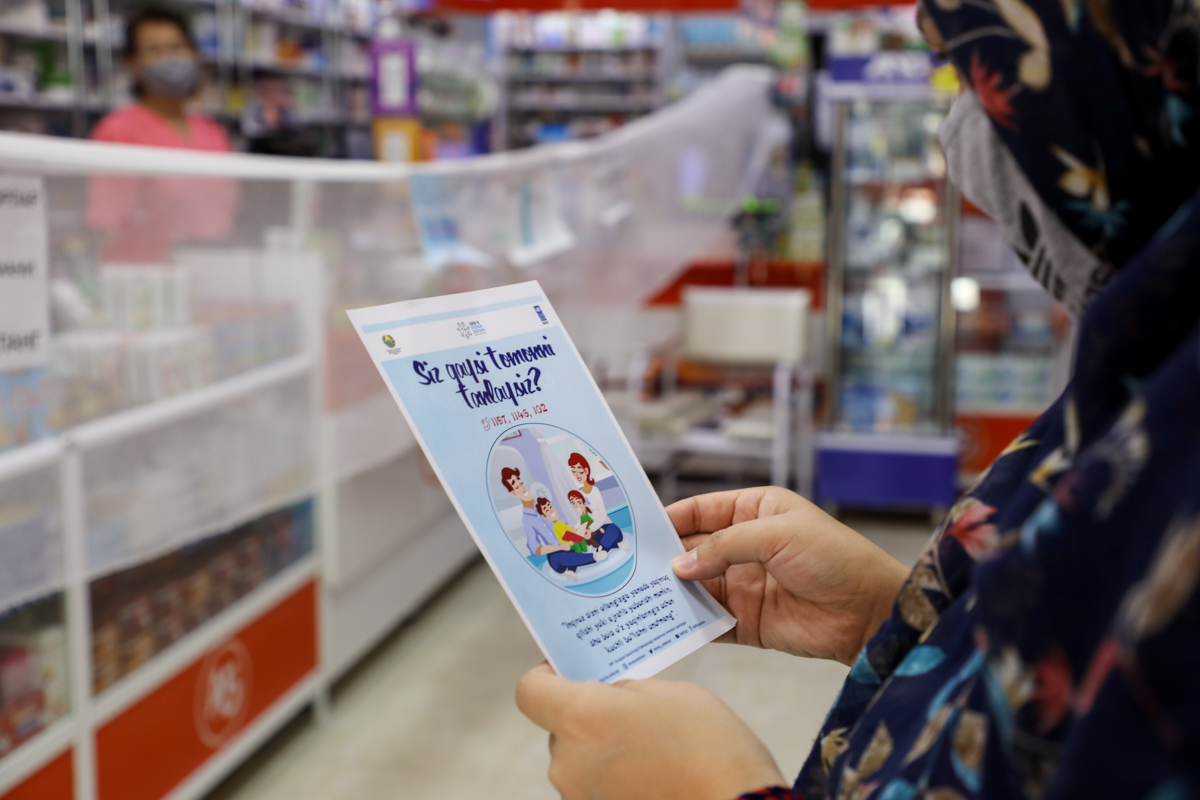Gender equality

COVID response: Gender equality
Evidence from past epidemics shows that gender-based inequalities determine the impacts of any crisis on women's and men’s health, economic equality, security and safety. Understanding the gender-differentiated impacts of disease outbreaks is fundamental to creating effective and equitable policies and interventions that leave no one behind.
Women in Europe and Central Asia already face disproportionate challenges in terms of employment, which have increased with the pandemic. In the region, women earn on average 30 percent less than men in formal jobs. For many, their work is informal and part-time, lacking social protection, insurance coverage and access to healthcare. Many women have lost or left their jobs or seen their wages decrease because of their increasing burden of domestic and unpaid care work.
Women-led small and medium businesses, often lacking social safety nets and savings, are also expected to face greater challenges in accessing credit and support for rebuilding their own business. The pandemic could intensify economic disempowerment of women and increase gender gaps in employment. We are assessing the extent of these impacts and supporting governments to formulate tailored policies.
One in three women experience physical and/or psychological violence, mostly from their partners. During COVID-19, gender-based violence has increased due to restrictions of movements, lockdowns and quarantines. We are supporting governments and partnering with civil society organizations on a range of measures to combat violence against women and girls in the home, from developing mobile apps to strengthening police and social systems to providing immediate assistance to women’s shelters.
Given the profoundly gendered impacts of the pandemic, it is imperative to ensure equal participation in COVID-19 response. It is critical that women policymakers – in government, parliament, civil society and other sectors – shape policy and decision.
Read more in our Gender Equality COVID-19 Bulletin
Regional factsheet on policy measures adopted in Europe and Central Asia to respond to the COVID-19 pandemic.
Here are some of our initiatives to respond to the COVID-19 crisis
- UNDP in Albania is working with central and local authorities to prevent and tackle cases of domestic violence. UNDP continued working closely with relevant line ministries and the State Police and CSOs to identify violence situations and responses and advocate for and implement all measures to tackle domestic violence.
- UNDP in Azerbaijan, with the EU and civil society organizations, organized business development training for over 6,000 aspiring women entrepreneurs.
- In Armenia, UNDP brought women who participated in its leadership schools in an online community, training them in disaster preparedness and response and creating a resource cadre for their villages and towns. They are now among the key actors helping to tackle COVID-19-related consequences in local communities, for which UNDP will help provide digital services to support them.
- In Serbia, UNDP has been addressing the issue of rising domestic violence by increasing local partners’ SOS helpline capacities and creating social network campaigns with the "Journalists Against Violence” to spread the messages about psycho-social support provided by SOS helplines.

UNDP Uzbekistan distributed flyers in pharmacies with information for gender-based violence support. Photo: UNDP Uzbekistan

 Locations
Locations